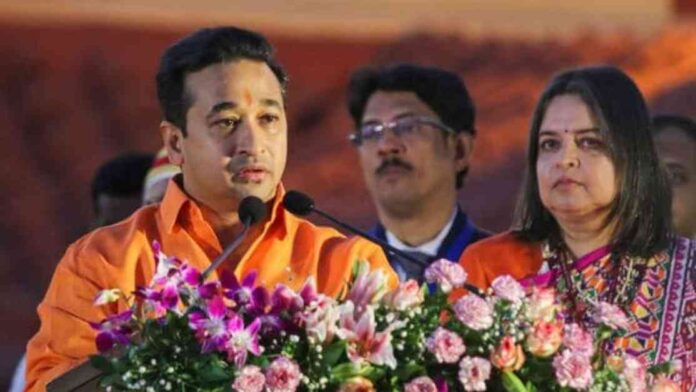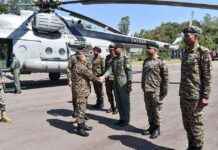Burqa Ban Sparks Debate in Maharashtra Board Exams
Amidst a heated debate surrounding religious attire in educational settings, Maharashtra Minister Nitesh Rane has taken a bold stance by urging the Maharashtra Education Minister to implement a ban on students wearing burqas during the upcoming 10th and 12th Maharashtra Board examinations. Citing concerns about potential cheating, Rane emphasized the need for uniform rules for all students regardless of their religious background. In a recent interview with ANI, Rane expressed, “Our government will not tolerate the politics of appeasement. The rules that are applicable to Hindu students, the same should apply to Muslim students as well.”
Rane’s assertion has sparked a polarizing discussion on the intersection of religious beliefs and academic integrity. The controversy deepened as Congress leader Husain Dalwai voiced opposition to Rane’s proposal, advocating for the rights of students to wear religious attire during examinations. Dalwai emphasized the importance of respecting individual traditions and criticized any attempt to curtail students’ rights to express their religious identity.
Burqa Ban Across India: A Growing Trend
The issue of banning burqas and other religious attire in educational institutions is not unique to Maharashtra. In February 2022, the Karnataka government enforced a ban on hijabs in schools and colleges, triggering protests among Muslim students who viewed the ban as an infringement on their religious rights. The situation escalated further when Hindu students staged counter-protests, demanding the freedom to wear saffron scarves, adding a layer of complexity to the discourse on religious expression in academic environments.
The Karnataka High Court’s decision to uphold the ban on hijabs, ruling that wearing them is not an essential religious practice in Islam, drew criticism both domestically and internationally. However, with a change in government in Karnataka, the Congress has downplayed the severity of the ban on burqas in educational institutions, signaling a shifting landscape in the ongoing debate over religious attire.
Legal Challenges and Nuanced Approaches
In a related development, the Supreme Court intervened in a case involving a Mumbai college’s directive prohibiting students from wearing hijabs, burqas, caps, and naqabs on campus. While the court allowed the ban on burqas and naqabs to remain in place, it underscored the necessity of adopting a more nuanced approach to religious attire within educational institutions. This decision reflects the delicate balance between upholding academic integrity and respecting students’ religious freedoms.
As the debate over the burqa ban in Maharashtra intensifies, it highlights the broader issues of religious freedom, cultural diversity, and academic integrity in India’s educational landscape. The clash of opinions between political leaders underscores the complexity of navigating sensitive issues that intersect with religious beliefs and educational policies. As the discourse continues to evolve, it remains crucial for policymakers to strike a balance that respects students’ religious identities while upholding the integrity of the examination process.
The controversy surrounding the burqa ban in Maharashtra board exams serves as a poignant reminder of the ongoing challenges in reconciling religious practices with educational norms. As students, parents, and policymakers grapple with these complex issues, it is imperative to foster dialogue, understanding, and empathy to arrive at solutions that uphold both academic integrity and religious freedoms. Only through open communication and mutual respect can we navigate the intricate tapestry of beliefs and values that shape our educational institutions and society at large.

















